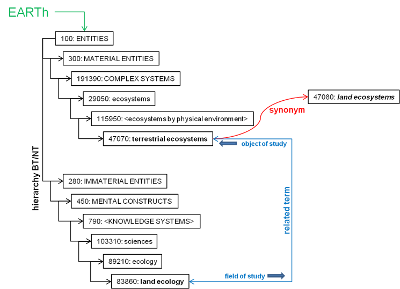Thesauri
Introduction
Thesauri are controlled and dynamic vocabularies of terms, where semantic relations (hierarchical, associative, equivalence) between terms are explicitly declared. They are instruments for the semantic control of the language and can be used for indexing, classification, metadatation, cataloguing and retrieval of information in databases.
Thesauri can adopt different classification structures based on general categories and facets, on a thematic or disciplinary base, or following a mixed approach. To represent the semantics of a term it is necessary to choose which types of characteristics and how many of them need to be considered and included in the representation. While there is the necessity to share a common and stable meaning of the terms to guarantee communication within a community, openness to further exploration of meaning should also be ensured so as not to impoverish its richness and complexity. Highly structured and refined, but flexible tools are needed to deal with issues such as information management on the web or to satisfy the growing demand of semantic interoperability. The goal is the development of a thesaurus that could include the above assumptions aiming to become an advanced tool to be applied in environmental information management. To sustain environmental policy and research, not only access to- but also a high-level quality of information is required. There is the constant need to follow the terminological changes in science and technology (new terms and/or new meanings, new topics and issues). Starting from this premise, we adopted a more inclusive approach concerning both conceptual coverage and semantic organisation, and taking also into consideration suggestions arising from the development of applied ontologies, we started to work on thesaurus format containing some innovative elements. Copyright for the CNR-ISP Vocabularies structure and content in English and Italian is licensed under a Creative Commons Attribution-NonCommercial-NoDerivs 4.0 Unported License.
Special Issue: Low Temperature Microbiology Meets the Global Challenges of Our Time (deadline 15 December 2022)
 A special issue of Microorganisms (ISSN 2076-2607). This special issue belongs to the section "Environmental Microbiology".
A special issue of Microorganisms (ISSN 2076-2607). This special issue belongs to the section "Environmental Microbiology".
This Special Issue aims to compile scientific contributions on low temperature microbiology with a focus on current and future global challenges. Original research, review, and perspective papers addressing the following topic areas will be considered: Environmental change: e.g., the taxonomic and functional diversity of microbial communities in polar and alpine regions, biodiversity loss, biotic and abiotic interactions, biological processes and biogeochemical cycles, greenhouse gas production, ice-albedo, etc.; Long-term microbial preservation in nature: e.g., microbial ancient DNA (aDNA), viability and metabolic activity of microorganisms in ancient cryo-environments, old pathogens in melting glaciers and permafrost, etc.; Sustainable bioproducts and bioprocesses: e.g., omics-based approaches to the discovery of functional molecules, expression systems and fermentation strategies, cryo-enzymes, antimicrobials, biosurfactants and other cold-active biomolecules of biotechnological potential, etc.
Special Issue information - Deadline for manuscript submissions: 15 December 2022.
Special Issue Editors: Amedea Perfumo (AWI), Angelina Lo Giudice (CNR-ISP)
Fellowships
There are no active fellowships
SIOS Survey: Assessing impacts of COVID-19 pandemic on Svalbard science community
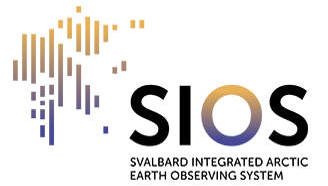 Svalbard Integrated Arctic Earth Observing System-Knowledge Centre (SIOS-KC) and its Remote Sensing Working Group (RSWG) has prepared a survey to understand the impacts of COVID-19 on the Svalbard science community, long-term monitoring programmes, and other field activities in Svalbard during 2020. This survey will be used to make a strategy for the upcoming (2021) field season in Svalbard. It will take approximately 15 minutes to complete this survey. The survey will be closed on 7th January 2021.
Svalbard Integrated Arctic Earth Observing System-Knowledge Centre (SIOS-KC) and its Remote Sensing Working Group (RSWG) has prepared a survey to understand the impacts of COVID-19 on the Svalbard science community, long-term monitoring programmes, and other field activities in Svalbard during 2020. This survey will be used to make a strategy for the upcoming (2021) field season in Svalbard. It will take approximately 15 minutes to complete this survey. The survey will be closed on 7th January 2021.
L'Istituto di Scienze Polari a Maker Faire Rome 2020, 10-13 Dicembre 2020
 Dal 10 dicembre ore 10.00 al 13 dicembre ore 22.00
Dal 10 dicembre ore 10.00 al 13 dicembre ore 22.00
Nell'ambito della manifestazione Maker Faire Rome - The European edition 2020 il CNR-ISP partecipa con il seguente programma:
SPOTLIGHT ON CANADA - WEBINAR: Digitalisation of the Energy Sector | 2 December 2020
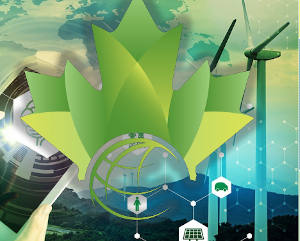 Webinar, organizzato in collaborazione con ENLIT Europe, “Spotlight on Canada: the Digitalisation of the energy sector” in programma il 2 dicembre 2020 alle ore 16:00 CET.
Webinar, organizzato in collaborazione con ENLIT Europe, “Spotlight on Canada: the Digitalisation of the energy sector” in programma il 2 dicembre 2020 alle ore 16:00 CET.
Registrazione basta al seguente link:
SIOS Webinar - Marine science in Svalbard - global to local perspective
ISP a FUTURO REMOTO 2020 - 23 Novembre
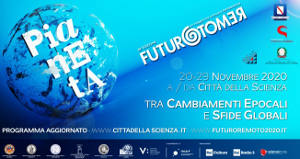 Fa troppo caldo per il ghiaccio - 23 novembre ore 9.00 - 10.00, per scuole e università, con Renato Colucci, ricercatore ISP
Fa troppo caldo per il ghiaccio - 23 novembre ore 9.00 - 10.00, per scuole e università, con Renato Colucci, ricercatore ISP
L'attuale fase climatica di riscaldamento, evidente su gran parte della superficie terrestre e con temperature che mediamente, a livello globale, si sono già alzate di poco più di 1°C, vede le zone montane e polari quelle più vulnerabili e sensibili all'aumento della temperatura. Sono queste le aree dove si trovano i ghiacciai che, di conseguenza, si stanno ritirando a ritmo sempre più accelerato. Quali sono le conseguenze di un mondo con sempre meno ghiaccio?
1 Dicembre 2020 - "Antarctica Day" - Webinar
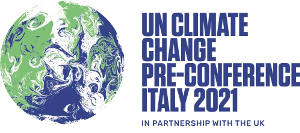 Celebrating Antarctica: climate change, biodiversity, and science
Celebrating Antarctica: climate change, biodiversity, and science
L’evento (WEBINAR) si colloca nell’ambito delle attività di sensibilizzazione e promozione della PreCOP e COP 26
Orario Italiano: 1 Dicembre 8:00-9:30 Registrazione
Colucci Renato R.
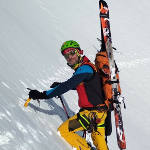 He joined the Institute of Polar Sciences in November 2020 as a Scientist. He got a Master degree in Geology (2009) and a PhD in Environmental Science (2013) during which he honed his skills at the University Center in Svalbard (UNIS). He is a CNR permanent staff since 2001 after working in the technical staff of the Istituto Talassografico in Trieste (2001-2004) and at the Marine Science Institute (2004-2020) in the Climate and Paleoclimate Research Group. Since 2015, he is also Adjunct Professor in Glaciology at the Department of Mathematics and Geosciences of the University of Trieste.
He joined the Institute of Polar Sciences in November 2020 as a Scientist. He got a Master degree in Geology (2009) and a PhD in Environmental Science (2013) during which he honed his skills at the University Center in Svalbard (UNIS). He is a CNR permanent staff since 2001 after working in the technical staff of the Istituto Talassografico in Trieste (2001-2004) and at the Marine Science Institute (2004-2020) in the Climate and Paleoclimate Research Group. Since 2015, he is also Adjunct Professor in Glaciology at the Department of Mathematics and Geosciences of the University of Trieste.
His Research centers around the interactions between the cryosphere (glaciers, permafrost, ice caves) and the climate, spanning from the end of the Last Glacial Maximum to the Holocene. Key research topics are glacial and periglacial geomorphology, glaciology, weather/climate monitoring with a focus on high elevated alpine areas, quaternary geology, ice deposits in caves.
He took part in several scientific expeditions in Antarctica (2015 and 2016) with the British Antarctic Survey, in Pakistan-Karakorum (2013) and in the Chilean Andes (2012). In 2014-2017 was a Council Member of the European Meteorological Society.
Present Responsibilities:
- Italian Representative of the International Permafrost Association
- Scientific Editor of the Journal of Mountain Science (Springer)
- Guest Editor Special Issue Interactions between the Cryosphere and Climate (Change) - Atmosphere
- Topical Editor of the International open-access proceeding s journal Advance in Science and Research
- President of the Alpine-Adriatic Meteorological Society
Scopus - Author ID: 7003357799 ![]() 0000-0001-8344-5723 Google Scholar
0000-0001-8344-5723 Google Scholar
 Ministero dell'Universita e Ricerca
Ministero dell'Universita e Ricerca
Programma Ricerche Artico
Programma Nazionale di Ricerca in Antartide
 Ministero degli Affari Esteri e della Cooperazione Internazionale
Ministero degli Affari Esteri e della Cooperazione Internazionale
L'Italia e l’Artico
L’Italia e l’Antartide
CNR-ISP
National Research Council
Institute of Polar Sciences
c/o Scientific Campus - Ca' Foscari University Venice - Via Torino, 155 - 30172 VENEZIA MESTRE (VE)
Phone: +39 041 2348547 - E-mail: protocollo.isp AT pec.cnr.it
Fax: +39 041 2348 549 - Codice Fiscale: 80054330586 - P.I.:02118311006
Unless otherwise indicated, the content of this site is licensed : Attribution Non Commercial Share Alike 4.0 International (CC BY-NC-SA 4.0)
Privacy policy e Cookie policy - Transparent administration (CNR)







